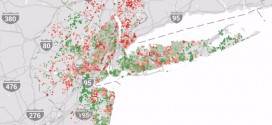Student loan debt continues to grow as an obstacle in a consumer’s ability to buy a home, as 57 percent of 2015 respondents who acknowledge having student loans said this debt was either “very much” or “somewhat” of an obstacle, compared to 49 percent of 2014 respondents, according to the third annual America at Home survey from NeighborWorks America.
The survey found that generally levels of student debt among adults have not changed greatly in the past year. The percent that personally has any student debt stayed the same, at 17 percent of the national sample. The percentage that worries about their student debt they owe either all of the time or some of the time also stayed constant, at 30 percent.
When it comes to their ability to buy a home, however, the survey found that student debt has grown to be an even greater barrier to homeownership now than it was a year ago. One out of four participants in the survey (25%) said student is “very much of an obstacle” to buying a home, compared to 20 percent a year ago and 32 percent said it is “somewhat of an obstacle” compared to 29 percent a year ago. The percent of adults who said they who has had to delay the purchase of a home because of their student loan debt increased from 24 to 28 percent over the past 12 months.
Additionally, although mortgage rates remain historically low, a generally steady rise in home prices is outpacing income growth, leading homebuyers — especially first-time buyers — to search for ways to build up a down payment. However, nearly 40 percent of respondents have received “nothing at all” in terms of information about down payment assistance programs for middle-income homebuyers, programs that could provide thousands of dollars to help bridge a savings gap.
Finally, the housing market is being pressured by changing demographics. Of the respondents surveyed, 43 percent planned to purchase a home when they “got married or moved in with a life partner.” This is important for the housing market’s rebound, because the median age at first marriage has increased to 29.3 for men and 27.0 for women, according to the Census Bureau, up from 26.8 and 25.1 years, respectively in 2000.
“It’s clear the housing market is directly affected by many factors, and these forces identified in our survey are putting strong downward pressure on growth,” said Paul Weech, president and CEO of NeighborWorks America. “While NeighborWorks can’t address the demographic shift, we are increasing our efforts to support nonprofits that offer homebuyer education and financial capability coaching.”
The national representative survey was conducted in September among 1,000 U.S. adults using a random digit dial (RDD) sample. The survey has a margin of error of +/- 3.1 percentage points at a 95 percent confidence level.
 RealEstateEconomyWatch.com Insight and Intelligence on Residential Real Estate
RealEstateEconomyWatch.com Insight and Intelligence on Residential Real Estate


